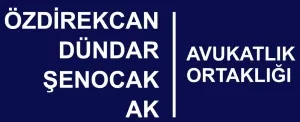In its decision of 20 October 2022, numbered 22-48/706-2991 (the "Decision"), the Turkish Competition Board (the "Board") imposed an administrative fine of approximately EUR 18.6 million on the economic entity Facebook, which comprises Meta Platforms, Inc. (formerly Facebook Inc.), Meta Platforms Ireland Limited, and WhatsApp LLC.
The Board concluded that Meta has a dominant position on Türkiye's2 markets for personal social network services, consumer communication services, and online display advertising. The Board unanimously concluded that Meta has been abusing its dominant position by combining data from its services (Facebook, Instagram, and WhatsApp), impeding competitors from operating on these markets and disrupting competition by erecting barriers to market entry.
In addition to the administrative fine, the Board imposed behavioural sanctions on Meta. As a result, Meta must submit to the Board the remedies required to end the violations, implement compliance remedies, and report to the Board at specified intervals over a five-year period.
The German Facebook Case
The "Facebook" decision of the Bundeskartellamt (the Federal Cartel Office, Germany) in February 20193 was the first decision by a competition authority in which the protection of privacy was explicitly taken into account in a competition law decision. In its decision of 6 February 2019, the Federal Cartel Office prohibited Facebook Inc., Menlo Park, USA, Facebook Ireland Ltd., Dublin, Ireland, and Facebook Germany GmbH, Hamburg, Germany from making the use of the Facebook social network by private users residing in Germany, who also use its corporate services WhatsApp, Oculus, Masquerade and Instagram, conditional on the collection of user and device-related data by Meta, and combining that information with the Facebook.com user accounts without the user's consent.
The Federal Cartel Office prohibited the data processing policy that Meta imposes on its users and ordered the termination of this conduct. The Federal Cartel Office also prohibited the implementation of these terms and conditions in actual data processing procedures that Meta performs based on its data and cookie policies. In the order to cease the infringement, Meta was ordered to implement the necessary changes and to adapt its data and cookie policies accordingly within a period of twelve months. In addition to that, Meta was given a deadline of four months to present an implementation road map for the adjustments.
Meta appealed against the decision of the Federal Cartel Office to the Higher Regional Court Of Düsseldorf (the "Court of Düsseldorf"). The Court of Düsseldorf asked to the Court of Justice of European Union ("CJEU") whether national competition authorities are entitled to assess the compliance of data processing with the GDPR. In addition, the Court of Düsseldorf asked the CJEU about the interpretation and application of certain provisions of the GDPR.
Opinion of Advocate General Rantos
Advocate General Rantos (the "Advocate General") in an opinion delivered on 20 September 2022,4 held the view that, while a competition authority does not have jurisdiction to rule on an infringement of the GDPR, it may nevertheless, in the exercise of its own powers, take account of the compatibility of a commercial practice with the GDPR. In that respect, the Advocate General emphasised that the compliance or non-compliance of that conduct with the provisions of the GDPR may, given all the circumstances of the case, be an important indication of whether that conduct amounts to a breach of competition rules. The Advocate General noted that a competition authority can only evaluate GDPR compliance as an incidental question, without limiting the capacity of the competent supervisory body under that regulation.
The Advocate General considered that the simple fact that an undertaking operating a social network holds a dominant position on the national market for private users of online social networks does not invalidate the user's consent to the processing of their personal data. However, the data controller must show that such a situation affects the evaluation of the data subject's freedom of consent.
Conclusion and Remarks
The Decision show the Board's focus on the intersection of personal data and competition law in light of recent developments in the EU. The decision of the Federal Cartel Office has provoked a controversial international discussion regarding the unclarified link between data protection law and competition law in the context of emerging digital platform markets. This subject is also highly pertinent to the present competition policy debate over digital platforms and the recently implemented Digital Markets Act in the EU, due to the critical role that personal data plays for the market power of large digital platform undertakings.
Footnotes
2. Türkiye changed its official name from the Republic of Turkey on 26 May 2022 in a request submitted to the United Nations Secretary-General.
3. An English translation available at: https://www.bundeskartellamt.de/SharedDocs/Entscheidung/EN/Fallberichte/Missbrauchsaufsicht/2019/B6-22-16.pdf?__blob=publicationFile&v=4
4. https://eur-lex.europa.eu/legal-content/en/TXT/?uri=CELEX:62021CC0252
The content of this article is intended to provide a general guide to the subject matter. Specialist advice should be sought about your specific circumstances.



